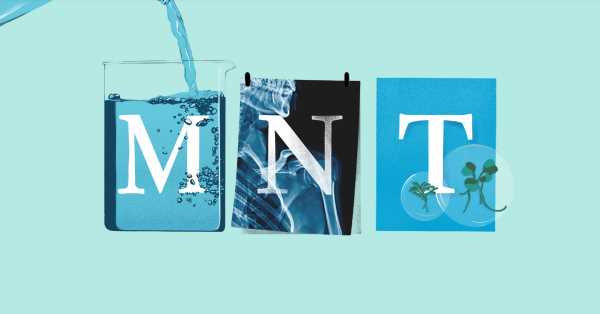
- Menstrual cramps, or dysmenorrhea, can cause monthly misery for those who menstruate.
- Painkillers and anti-inflammatories can provide relief, but long-term use is not advisable, and they do not work for everyone.
- A new review of studies in adolescent and teenage girls suggests that an anti-inflammatory diet may relieve menstrual cramps.
- Meat, oil, sugars, salts, and coffee worsened menstrual cramps, while foods containing omega-3 fatty acids are anti-inflammatory and may alleviate them.
- Those wanting a more holistic approach to their menstrual health may wish to try certain dietary modifications.
From puberty to menopause, menstruation is a part of life for anyone with a uterus. And for many of those people, the monthly period comes with unwelcome side effects.
Leading up to a period, many people experience premenstrual symptoms that can impact their daily functioning, such as mood shifts, headaches, bloating, and cramps. Then the period begins, and for a large proportion of people, the menstrual cramps worsen.
Menstrual cramps start in the uterus, but they are often accompanied by symptoms elsewhere in the body, including:
- pain in the lower back and thighs
- nausea and vomiting
- sweating
- faintness and dizziness
- diarrhea or loose stools
- constipation
- bloating
- headaches
Painkillers, non-steroidal anti-inflammatories (NSAIDs), and birth control pills may provide relief for some, but they may not be suitable or effective for everyone.
Regular exercise, avoiding stress, and stopping smoking can all help combat menstrual cramps as well.
And now, a new research review presented this week at the North American Menopause Society (NAMS) conference has confirmed that dietary changes can have a significant effect on the severity of menstrual cramps.
Dr. Monica Christmas, NAMS board member and director of the Center for Women’s Integrated Health at the University of Chicago, not involved in the new research, told Medical News Today:
“This meta-analysis of adolescents with dysmenorrhea found that adhering to an anti-inflammatory diet was associated with decreased dysmenorrhea. Encouraging young people to adopt healthy lifestyle practices at a young age will be instrumental in maintaining optimal health throughout midlife and beyond and may help to slow the aging process.”
Comprehensive review
The research review included multiple studies evaluating the relationship between diet and menstrual pain.
“Researching the effects of diet on menstrual pain started as a search to remedy the pain I personally experienced; I wanted to understand the science behind the association,” Serah Sannoh, a Rutgers University student and lead author of the poster presentation, told MNT.
Researchers focused their analysis on adolescent and teenage girls, as menstrual cramps are common in this group and responsible for many lost school days.
An older study from 1981 found that 14% of adolescent girls in the United States regularly missed school because of menstrual cramps. In another study published in 2017, 13% of teenage girls in Nigeria had taken days off school because of period pain.
But it is not just teenage girls who endure menstrual cramps — they can affect anyone who menstruates.
Therefore the findings of the review could provide ideas for holistic ways to keep period cramps under control.
The role of inflammation
Menstrual cramps happen when prostaglandins cause the uterus to contract to expel the lining of the uterus. Some people barely notice this happening, but it can cause intense discomfort for others.
Prostaglandins also cause inflammation, and it is this inflammation that can lead to more severe menstrual cramps.
It has long been known that some foods cause inflammation and others relieve it. This latest research has shown that foods that relieve inflammation may also alleviate menstrual cramps.
Foods to avoid
The review identified a number of foods that made menstrual pain worse. These include meat, oil, sugars, and salts. In addition, coffee was found to increase cramps.
“Refined sugar, common cooking oils, trans fats, dairy products, processed and red meat, refined grains, and alcohol are considered highly inflammatory foods. It is thought that these ‘inflammatory foods’ cause an increased release of prostaglandins. Elevated prostaglandin release is associated with dysmenorrhea due to increased vasoconstriction of the blood vessels feeding the uterine musculature, resulting in uterine cramping due to decreased blood flow to the uterus. Adhering to an anti-inflammatory diet is suspected to mitigate the rise in prostaglandins.”
– Dr. Monica Christmas
What foods help?
The research review notes that omega-6 fatty acids increase inflammation, whereas omega-3 fatty acids reduce inflammation.
“Omega-6 fatty acids are […] pro-inflammatory, and they trigger the painful menstruation cascade,” Sannoh said.
“These are found in foods like red meats and processed foods like french fries. In addition, sugar, coffee, and salt are also inflammatory. On the other hand, omega-3 fatty acids are anti-inflammatory […] These are found in foods such as salmon, sardines, flaxseeds, and nuts.”
The findings of the review would therefore suggest that limiting your intake of meat and processed foods while increasing oily fish, seeds, and nuts in your diet may relieve the monthly pain.
Fresh fruit and vegetables are a key part of an anti-inflammatory diet. The review found that people following a vegan or plant-based diet had lower levels of inflammation and were less likely to experience menstrual pain.
Clear link between diet and dysmenorrhea
As with any health concern, it’s wise to speak with a healthcare professional to rule out any underlying causes for menstrual cramps, such as endometriosis, before you try diet modification.
However, the review concluded there’s a link between what you eat and the severity of menstrual cramps and that dietary changes can be effective in reducing pain.
But can you still eat what you want and enjoy the occasional cup of coffee without making those cramps worse?
“Even if someone does not adopt a strict anti-inflammatory diet, decreasing your intake of inflammatory foods should help decrease the inflammation that causes menstrual pain,” Sannoh said.
Source: Read Full Article
